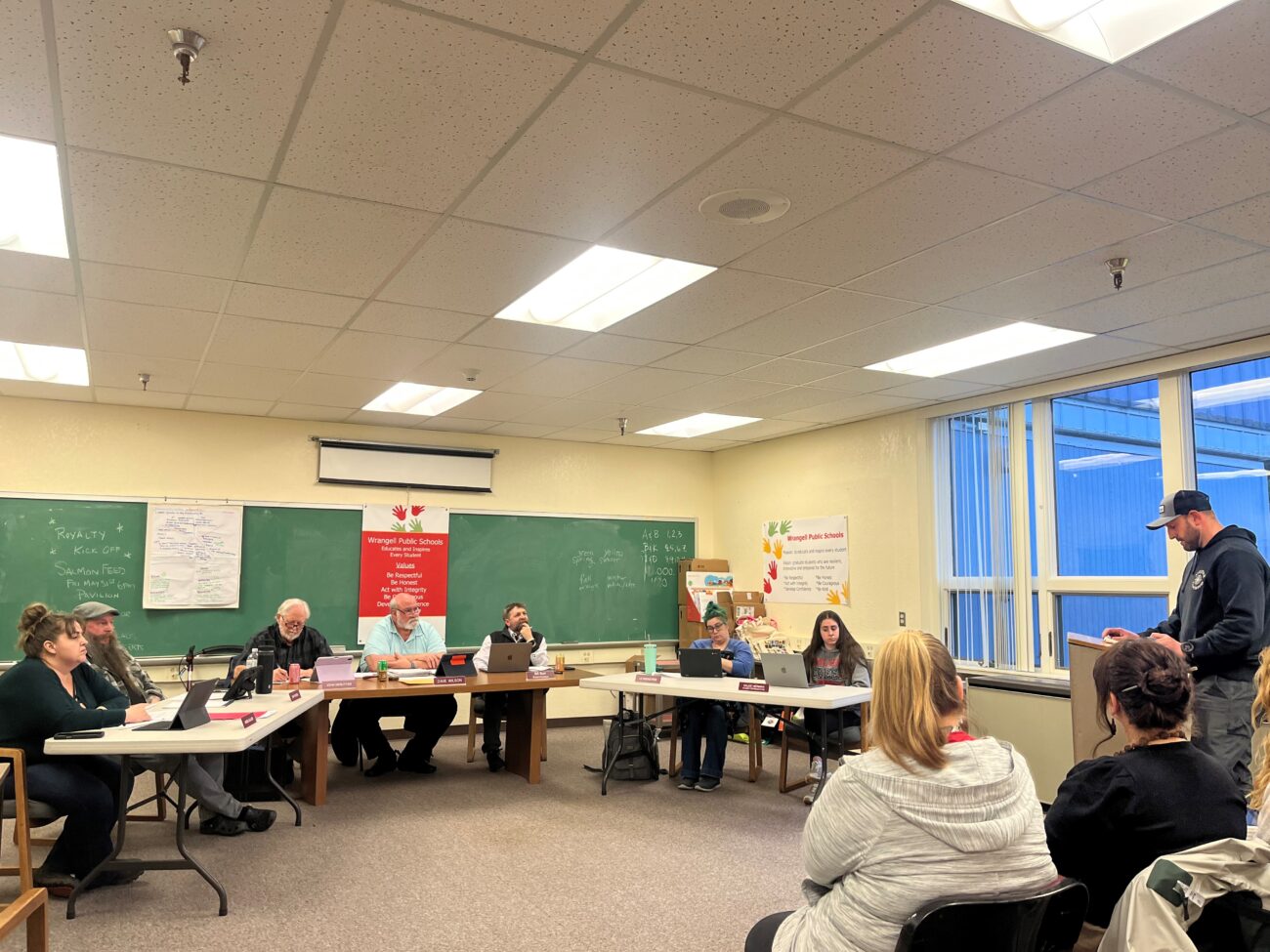
Odile Meister just learned that she will lose her job at both Evergreen Elementary and Wrangell High School. The classes are different, though.
Due to a looming budget deficit, Wrangell Public School District will slash at least two positions next year. Additionally, some changes with required classes include transitioning them to electives as well.
“I’m one of the two teachers that wasn’t given a contract,” she said. “The Title I obligations are going to continue, that’s a federally mandated program.”
Meister is the elementary intervention teacher focusing on reading and math. The federal Migrant Education Program (Title I, Part C) funds the position, based on the number of migrant students. She’s also in the school district’s second year of participating in the Alaska Reads Act.
That involves supporting the lowest performing 25% students in kindergarten through third grade. The students receive extra intensive assistance every day through the program. Meister expressed concerns about how the school will meet these mandates when she leaves.
Fewer teachers mean less resources
Meister said any certified elementary teacher qualifies for Title I funds, but fewer teachers mean less resources. It’s likely teachers will have to shuffle around to meet students’ needs.
After working with the elementary students, Meister heads over to the high school to teach Spanish. She’s also the only certified Spanish teacher on the island and has been teaching it for about nine years.
“The Title I position, any certified teacher pretty much do what they need to get that qualification without too much trouble,” she said. “But the Spanish is a whole other thing.”
She said Spanish is the second language in terms of native speakers globally. And, Meister said her Spanish classes have been successful. Right now she has 18 students in Spanish two.
“Online language classes are hard for anyone”
She said any student who wants to attend college outside of Alaska will need at least two years of the same language. For Spanish, the school district pays her out of the general fund budget. Spanish could be offered online, but Meister said there could be problems with that.
“Online language classes, I would say particularly, are hard for anyone,” she said. “I would think that there’s very few students who are going to have the dedication and motivation to stick with an online language class, especially for two years. So I think a lot of kids won’t end up picking that option.”
She said she hopes things will change for the sake of her students and herself.
“I just feel the students deserve better,” Meister said. “They deserve to have class options as much as possible, and so that’s why I’m trying to bring this to light and trying to avoid the consequence of losing two teachers.”
The other teacher being cut teaches preschool. The district says the program funds have been dramatically depleted, and there won’t be enough to support the two teaching positions next year.
Transitioning from required to optional: vocational education classes
Besides cutting two teachers, the school district is turning the required vocational education classes into optional. Board members made this decision at the March 17 school board meeting.
In a more recent school board meeting, Voc Ed teacher Winston Davies said he’s not only a teacher but also a product of the high school shop program. He attended shop class at Wrangell High School when he was a student.
“On Thursday, I was blindsided when another staff member asked if I knew that the voc ed graduation requirement had gone away,” he said. “I didn’t. I did not know that, and in fact, no one talked with me about it.”
Davies will keep his job. But he disagrees with the change. He said no one knew about it when he asked his colleagues.
“It doesn’t make sense, especially in this town,” he said. “Right now, the trades are hot. We’ve all heard about all the jobs going unfilled. Schools didn’t prepare enough students for this line of work, and now we’re at a point where more people are retiring than going into these fields.”
Davies said Superintendent Bill Burr told him it’s because of changes to the Alaska Performance Scholarship. The scholarship provides opportunities for high school graduates to further their education.
“I’m not sure why we’re letting the Alaska Performance Scholarship dictate our graduation requirements,” Davies said. “Only two students this year even qualify.”
He said this will open the doors to cut the vocational program.
“Everybody else’s first thought is, ‘If shop CTE (Career and Technical Education) courses aren’t required, you don’t have to have that credit, then it’d be easier to get rid of when there’s time to make cuts,'” Davies said.
Superintendent says the intention is not to remove the voc ed classes
Superintendent Bill Burr wrote in an email that removing the voc ed graduation requirements was “not quite a result of Alaska Performance Scholarship.”
He said the school district has a strong vocational education program and the intention is not to remove the classes. Instead, it’s to give students more flexibility with elective decisions.
Although the vocational education classes will continue as electives, the budget cuts are likely to remain. Burr said the exact amount of reduced funding won’t be known until early August.













